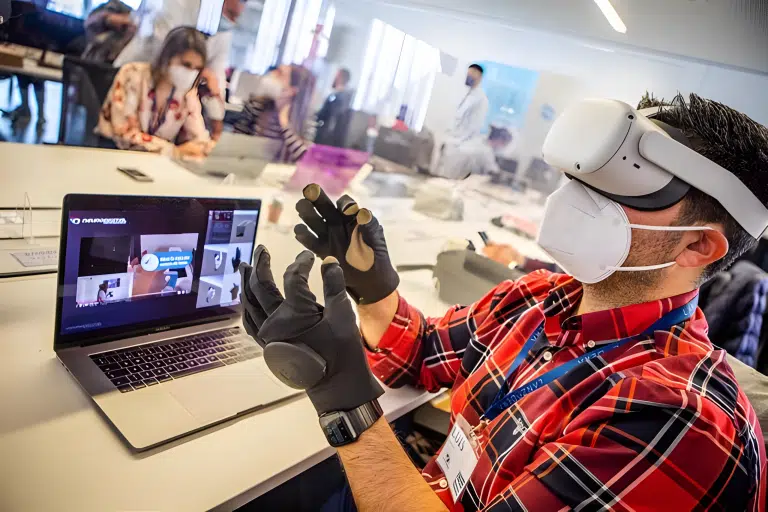
Offshoring is a business strategy that involves transferring part of operations or production to another country with the aim of becoming more competitive by reducing production costs. In the IT industry, some companies choose to create software factories in countries like India or South American countries, sending personnel to direct and manage the projects, or they subcontract projects or resources directly from foreign companies.
The main advantages of offshoring are cost reduction, as it takes advantage of lower wages in developing countries, and the ability to find the necessary resources, as there is often a scarcity of developers, and some specific profiles are very difficult to find.
However, there are a number of disadvantages that lead many companies to distrust offshoring and prefer to pay higher wages or simply abandon certain projects. The obsession with reducing costs can affect product quality, as cheap labor does not guarantee the same level of excellence in production.
At QualitApps, we understand the challenges faced by Spanish companies when outsourcing offshoring services. To address these challenges, we offer a supervised outsourcing service, providing developers, UI engineers, and Quality Assurance professionals from Sri Lanka. This allows us to maximize the benefits of offshoring while ensuring customer satisfaction and product quality.
Our CEO, who is Spanish, resides in Colombo, the capital of Sri Lanka, enabling us to guarantee that the profiles and services offered are appropriate and of high quality. Additionally, our Account Managers in Spain maintain direct contact with our clients and resources, helping to minimize any issues that may arise. This combination of proximity and direct supervision ensures effective communication and smooth execution of projects, meeting the standards and expectations of our clients.
Below, we detail the main challenges faced by companies, especially Spanish ones, when contracting IT services through offshoring, and how QualitApps addresses these issues with its outsourcing service.
Training
The disparity in training quality is a significant problem in some countries, where education can vary considerably between universities or training centers. In some cases, degrees can be obtained without adequate effort or even through bribery. For example, there are around 300 universities and IT training centers in Bangalore alone, many of which have notable deficiencies in teaching quality.
In Sri Lanka, public university education is free and of high quality. The IT degree is highly sought after, resulting in a high level of competition to enter, reserved for the most outstanding and dedicated students due to rigorous admission criteria based on grades. These institutions are strict regarding attendance and results, not allowing course or subject repetition.
Additionally, private universities in Sri Lanka offer degrees validated by educational institutions in the UK, thus ensuring an adequate level of training.
At QualitApps, our hiring policy focuses on selecting exclusively graduate engineers, prioritizing those from public universities recognized for their educational quality.
Experience
One of the main issues contributing to the lack of quality in offshoring is the lack of experience. Some companies offering these services are not transparent about the profiles provided, which can result in assigning developers with little industrial experience or insufficient skills in the required technologies.
At QualitApps, we are committed to offering only senior programmers with a minimum of 3 years of experience in the demanded technologies unless these are too new to have such a level of experience. Additionally, we implement a rigorous staff selection process to ensure that, even with this experience, both technical knowledge and coding quality align with the standards of a senior profile.
Quality
Quality is a major concern for companies opting for offshoring, as inadequate training and experience lead to poor development quality. Additionally, the lack of strong technical leadership to review and ensure code quality, as well as deficiencies in testing execution, also contribute to this problem.
At QualitApps, we are serious about the quality of our developments and our developers. We have a team of Tech Leads who closely supervise projects, providing technical support to the team and conducting thorough code reviews to ensure compliance with language standards, the use of best practices, and adherence to the defined architecture. Additionally, with our clients’ consent, we use tools like SonarQube to evaluate and analyze the quality of the developed code.
We apply rigorous Quality Assurance (QA) control in all subcontracted projects. Furthermore, when offering resources for outsourcing, we provide the option of hiring Quality Assurance engineers for both manual testing and automated testing implementation. This ensures exceptional quality at every stage of the development and testing process.
Commitment
Team members’ commitment is essencial to the success of any project. A motivated and responsible team can deliver projects within the established deadlines and with the expected quality. However, in some countries, developers may face low salaries and overwork, which affects their commitment. Some companies even do not fully dedicate subcontracted resources to a single client, which can result in low productivity and project delays.
In our supervised outsourcing service, we implement control applications to ensure that the developers fulfill all contracted hours. We provide transparency in the work performed, offering detailed reports of all completed tasks. Additionally, we maintain an 8-hour workday, allowing workers to have time for their families and rest, which helps them maintain optimal performance during those hours.
We also offer above-average salaries and organize regular team-building events to keep teams motivated. These measures contribute to increasing employees’ commitment to their work, which is reflected in both the quality and productivity of projects.
Methodology
Lack of control and transparency in subcontracted projects is a common complaint among companies and often leads to unpleasant surprises. It is common for providers not to regularly inform about the project status and to lack adequate management tools, such as Azure DevOps or Jira, which hinders transparency in the tasks performed and the time spent.
At QualitApps, we are certified with ISO 15504, related to the quality of the software development lifecycle. This means that not only do we follow agile methodologies in our developments, but our processes are also audited to ensure compliance with these methodologies. We maintain frequent communication with our clients and provide detailed reports of all billed hours.
Regarding supervised outsourcing, our developers fully integrate with our clients’ teams. We adopt both their methodology and project management tools and code repositories. Our Spanish account managers ensure that the agreed methodologies and processes are followed, thus guaranteeing transparency and control at all times.
Communication
Cultural differences and language issues can lead to misunderstandings when subcontracting companies from different regions. While some Latin American countries offer the advantage of the Spanish language, cultural differences can still cause communication challenges. On the other hand, East Asian countries, such as China, which are booming in outsourcing, often have significant language issues, as they not only do not speak Spanish, but their English proficiency is also limited, making communication difficult.
At QualitApps, we are aware of these potential communication problems and ensure that we hire staff with strong English communication skills. Additionally, we train them to always feel encouraged to ask questions in case of doubt, which helps minimize misunderstandings. We also have account managers in Spain who can help resolve conflicts, anticipate potential problems, and facilitate key meetings between the development team and the client when the latter cannot communicate in English.
For written communication, there are numerous tools on the market that offer high-quality translations from Spanish to English and vice versa, facilitating communication between our developers and clients with a low level of English. Together, these measures allow us to mitigate communication challenges and ensure effective collaboration among all parties involved in the project.
Time Zone
The time zone difference between teams located in different countries can be a significant challenge in coordinating and communicating efficiently. In Latin America, the time difference varies from 4 to 7 hours compared to Spain, which can make it difficult to hold daily meetings or standup meetings early in the morning. On the other hand, Eastern European countries have a minimal time difference, which facilitates schedule coordination.
In the case of the Indian subcontinent, including Sri Lanka, the time difference varies between 3.5 hours less in the summer and 4.5 hours in the winter. This means that the morning in Spain coincides with normal working hours in Sri Lanka and India, facilitating the planning of meetings and standup meetings. However, East Asian countries may have a considerable time difference, making communication even more challenging.
At QualitApps, we offer flexibility in our workers’ schedules to accommodate our clients’ needs. If required, we can adjust our employees’ schedules to align more hours of the day with the client’s schedule, facilitating effective coordination and communication between teams located in different time zones. This helps minimize challenges associated with time differences and ensures smooth and efficient collaboration in the project.
Legal Aspects
Legal and financial aspects are common concerns when offshoring outside the European Union. There are fears of contractual non-compliance and the management of upfront funds for projects that turn out to be failures. Additionally, there is the question of how invoices are issued and the costs associated with international bank transfers in different currencies.
In the case of QualitApps, being a Spanish company, we operate under Spanish law and comply with the General Data Protection Regulation (GDPR). Our invoices include Value Added Tax (VAT) and are processed through Spanish banks in euros. This provides our clients with security and transparency regarding legal and financial aspects. Additionally, by operating in euros and using Spanish banks, we minimize the costs and complications associated with international bank transfers and currency exchange rate fluctuations. This provides greater peace of mind and certainty for our clients when undertaking offshoring projects with QualitApps.
Rates
It is true that offshoring rates vary significantly depending on the region and country. Eastern European countries tend to have higher rates, making them profitable for European companies with high personnel costs, such as in Germany. On the other hand, South American countries offer more affordable rates than those in Eastern Europe, but higher than in Asia. Mexico, for example, offers offshoring services to U.S. companies, which may result in rates that are not as attractive as those in Asian countries.
In India, rates vary depending on the market and the type of company. Large Indian companies, with thousands of employees, are contracted by major U.S. companies, paying high rates and ensuring the quality of developers. However, there are thousands of smaller companies offering offshoring services to European companies at lower rates, which may result in hiring lower-profile developers. Southeast Asia also maintains competitive rates.
At QualitApps, we strive to offer competitive rates compared to Eastern European and Latin American countries, but not as low as in India. This is because we prioritize the quality of our developers and offer them fair wages. We guarantee a balance between quality and cost for our clients, ensuring a reliable and high-level offshoring service.
Offshoring has become an increasingly popular alternative for outsourcing IT projects or resources, as it offers flexibility in hiring and can lead to significant cost savings. However, it is true that sometimes it can be a kind of lottery in terms of results. Many Spanish companies have had bad experiences with offshoring, and its reputation is not always positive. However, other companies have succeeded in working this way.
At QualitApps, we understand the concerns associated with offshoring, which is why we strive to ensure that the services we offer are of the highest possible quality. We are committed to ensuring customer satisfaction and fostering strong, long-lasting relationships. To help overcome initial fears, we offer trial periods where our clients can evaluate our services before committing long-term. We believe this is an effective way to demonstrate our commitment to excellence and build our clients’ trust. Our goal is for every client to be satisfied with our collaboration and, in many cases, to recommend us to others.





